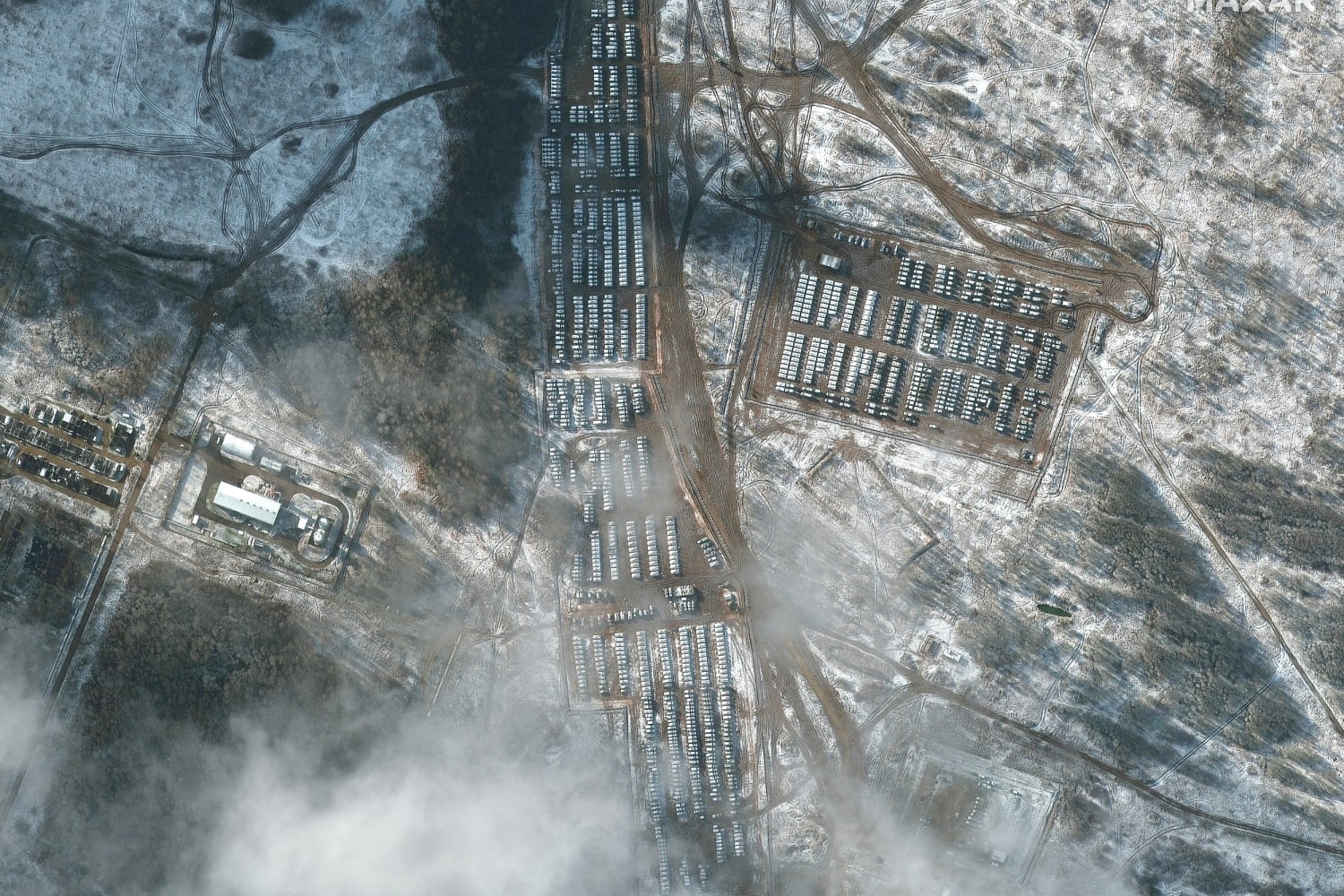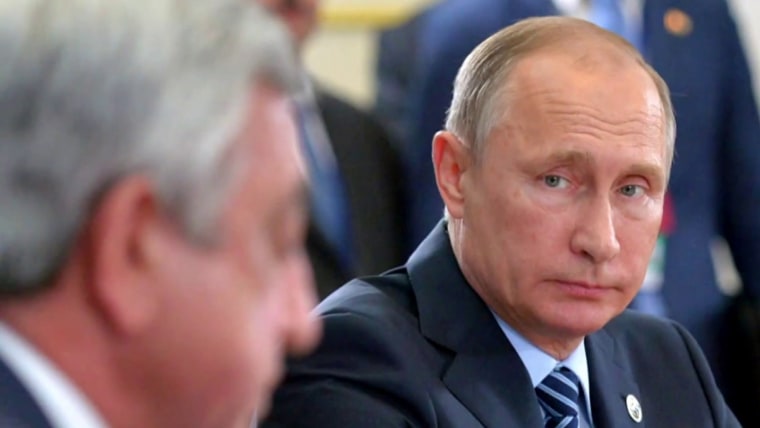The fuse that for decades has been linked to the perennial European powder keg of Ukraine is growing ever shorter. Russian troops are, as they did seven years ago before the Crimea invasion, massing in force along much of the border the two countries have shared for a millennium.
Today, there are few quantitative differences from the last few times Russia threatened its neighbor.
Today, there are few quantitative differences from the last few times Russia threatened its neighbor. But qualitatively, the threat may be even more intense and the stakes even higher. In recent weeks, Ukraine’s president, Volodymyr Zelenskiy, has told journalists that he had concrete evidence that a coup — orchestrated by a Ukrainian oligarch and crony of Russian President Vladimir Putin — was planned for Dec. 1 or 2. Maybe Zelenskiy got bad info. Or maybe Putin was simply measuring the costs now and in the future — possible new sanctions, greater isolation and an Afghanistan-style resistance by determined Ukrainians. Still, Russian troops are already deployed along the frontier. Can they not still dash to the Ukraine capital, Kiev, to ensure the success of such a putsch?
On Tuesday, President Joe Biden sits down for a make-or-break teleconference with Putin. It is a key moment for the U.S. leader, who must both stand firm and demonstrate the consequences of invasion in terms the Russian leader can fully appreciate.
It’s a vitally important call. Back in July, Putin waxed eloquent about the historic unity of Russians and Ukrainians in a lengthy tract tracing their shared history back a thousand years. And there are an increasing number of reasons Putin may think the time is right for a more robust show of force, even if he doesn’t ultimately cross the border.
For one thing, Putin very much needs a distraction right now. Covid-19 has devastated his country, with the virus’s death toll for October setting records, according to official figures (and these numbers are believed to be massively understated). At the same time, inflation rates of more than 8 percent have sapped buying power and raised lending rates, leaving the country restless and grumbling.
But beyond that, Putin most likely sees a big geopolitical opportunity. Many of his perpetual foes are tottering. Germany’s longtime iron chancellor, Angela Merkel, whom Putin seems to have both feared and respected, has given way to a new, untested liberal successor atop a fragile coalition in Berlin.
Over the last five years, Presidents Donald Trump and now Joe Biden have run roughshod over NATO’s vaunted unity. Trump blatantly criticized NATO’s refusal to shoulder more of the alliance’s financial burdens. Biden, while openly endorsing its democratic principles, undermined NATO with his unilateral decision to withdraw from Afghanistan and then blatantly undercut France in a submarine deal with Australia and Britain.
My personal feeling is that much of this has left Putin questioning whether Biden is capable of reacting effectively or of mustering allies effectively.
My personal feeling is that much of this has left Putin questioning whether Biden is capable of reacting effectively or of mustering allies effectively in the event that Russia does try something.
The U.S. has done little when faced with Russian threats since Putin’s invasion of Georgia in 2008. The vaguely suggestive “high-impact economic measures” that Secretary of State Antony Blinken trotted out after his meeting with his Russian counterpart, Sergey Lavrov, on Thursday remain underwhelming.
Meanwhile, Putin and his oligarchs have largely insulated themselves against the impact of such Western chastisements. Russia has very much learned to live with sanctions, the weapon of choice brandished by the U.S. and like-minded European countries. Russia now holds more gold than dollars in its international reserves, has shifted most of its bankable assets out of the U.S., has “de-dollarized” its foreign trade. (The downsides of Putin’s strategy, of course, are equally evident. Increased isolation, for example, would doom Putin’s efforts to rejoin the G-7, which Russia was expelled from after it seized Crimea in 2014.)
For Putin’s Russia, a toxic confluence of domestic pressures and international opportunities is shaping an outcome that could prove catastrophic — a scenario that Putin’s real or perceived foes must handle most deftly. That’s something that, sadly, the Biden administration doesn’t seem to have mastered very well, at least so far. And without solid American leadership, there may be insufficient momentum in the West to counter a determined and motivated Russia under Putin. A firm and united front by NATO, which Putin clearly respects; a show of sustained force on the Black Sea, which Putin still assesses that his warships dominate; and a credible threat of united Western action — up to and including air power convincing Russia that its forces wouldn’t control the battlefield — could prove decisive. But so far there has been little concrete evidence of such Western unity of purpose.
After Blinken met with Zelenskiy at the G-7 conference in Glasgow, Scotland, last month, his entire three-sentence statement simply “reaffirmed the United States’ unwavering support for Ukraine’s sovereignty, independence, and territorial integrity.” Hardly suggestive of actions that might give Putin much pause. Hopefully Biden can do better.
Source: | This article originally belongs to Nbcnews.com











